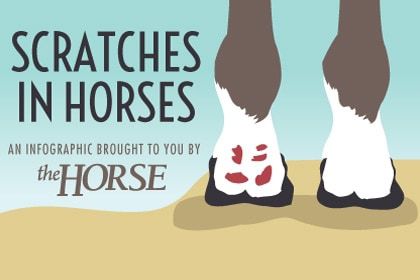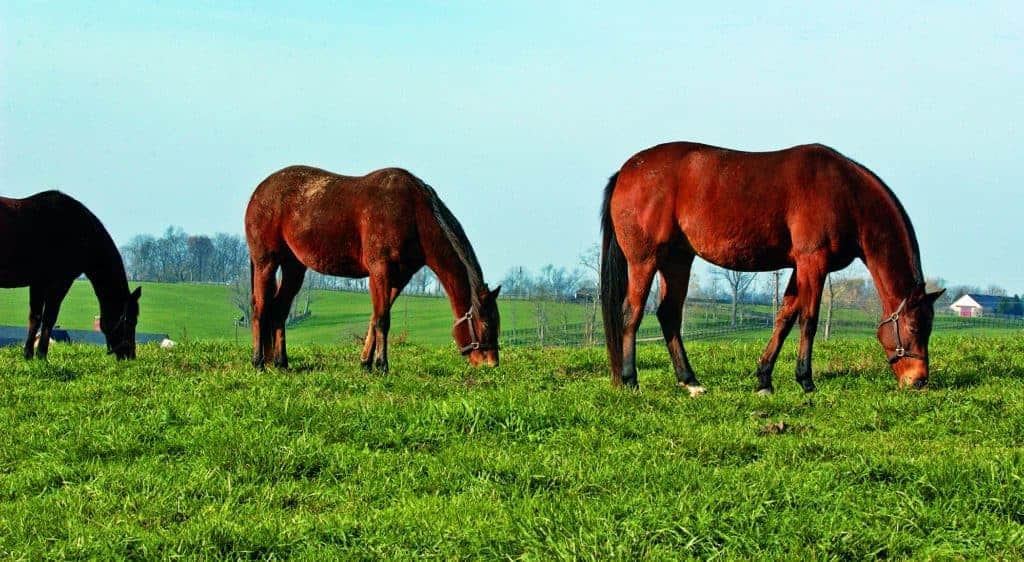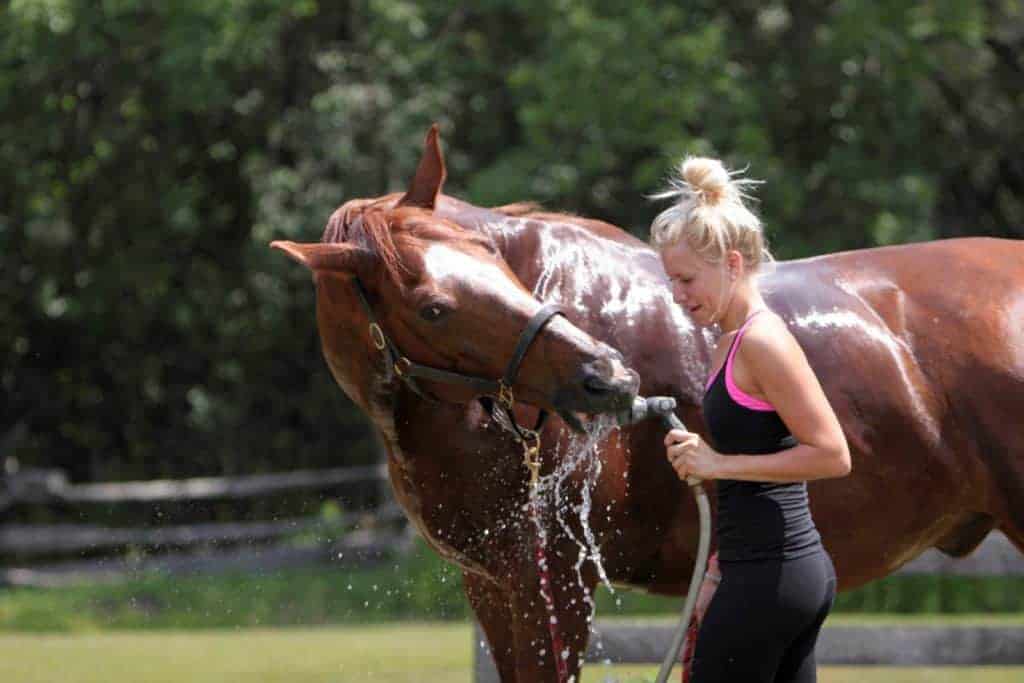
Infographic: Scratches in Horses
Discover the possible causes of scratches and how you can prevent and treat this frustrating dermatitis often found on a horse’s pastern in our step-by-step visual guide.

Discover the possible causes of scratches and how you can prevent and treat this frustrating dermatitis often found on a horse’s pastern in our step-by-step visual guide.

Does freezing weather turn urine and water in your stalls’ runs into pee-filled ice rinks? There’s no perfect solution, but here are some tips that might help.

Grain or hay: Which is better to keep horses from losing weight during winter?

Learn what author and horse trainer Tik Maynard hopes to find under his tree this year.

Scottish researchers found a half barley straw and half hay ration helped ponies lose weight.

Researchers found blanketed horses during a Wisconsin winter ate 8% less free-choice hay than their unblanketed peers while maintaining similar body conditions.

Dr. Amanda Adams of the University of Kentucky, in Lexington, describes her senior horse research, which focuses on EMS, PPID, and immune system health.

Mares in good body condition have a reservoir of stored fat that can be used during cold winter weather.

A veterinarian advises owners to consider various factors, from shade availability to humidity, when deciding whether to use a fly sheet in hot, humid weather.

How do you ensure a horse that’s reluctant to use his salt block and refuses to eat loose salt in his ration is getting enough?

A horse in Arizona is low-energy and losing weight in the summer heat. Find out what might help.

Know your common fly species, the diseases they transmit, and ways to deter them from your property.

Physiological stress can be an important equine welfare issue. Here’s what you should know.

Remember these pointers to help ensure your summer riding season is fun and safe.

A team from Norway conducted a series of studies on coat type, body-clipping, and metal shoes to understand how and where horses lose body heat.

How often do blankets need to be washed, and how do you clean them? Dr. Karen Waite responds.
Stay on top of the most recent Horse Health news with
"*" indicates required fields